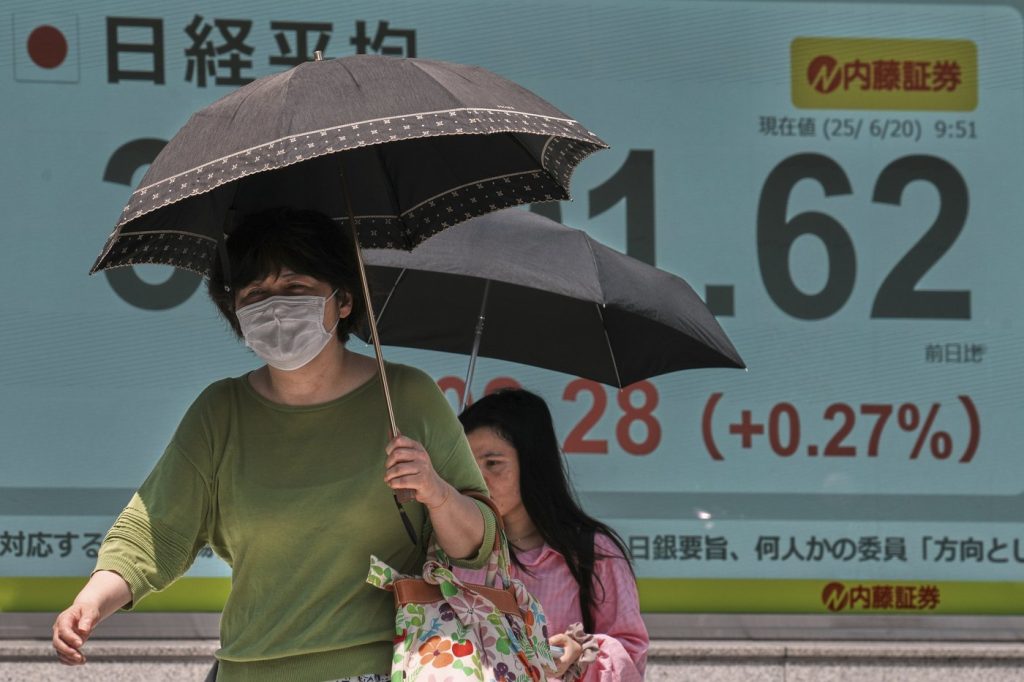MANILA, Philippines (AP) – Crude oil prices experienced an uptick while Asian shares exhibited mixed performance on Friday. Investors are particularly focused on the potential involvement of the United States in Israel's ongoing conflict with Iran. U.S. futures indicated a slight decline following Wall Street’s closure on Thursday in observance of the Juneteenth holiday.
U.S. benchmark crude oil saw an increase of 15 cents, arriving at $73.65 per barrel, while Brent crude, considered the international standard, rose by 19 cents to reach $76.89 per barrel. The fluctuation in oil prices has been pronounced, with concerns rising and falling regarding the implications of the Israel-Iran conflict on global oil supplies. Iran is a significant oil producer and strategically located near the Strait of Hormuz, a crucial passage for much of the world’s oil.
Investor caution persisted as the White House indicated that President Donald Trump might decide within two weeks whether to authorize military action against Israel. However, Trump reportedly still views diplomacy as a viable option, according to Anderson Alves, a trader at ActivTrades. In addition to geopolitical tensions, Trump’s tariffs agenda continues to weigh heavily on market sentiments.
In Asian markets, Japan's Nikkei 225 index recorded a slight gain of 0.1%, climbing to 38,538.14. This rise was influenced by reported increases in Japan's core inflation rate, which reached 3.7% in May, presenting additional challenges for Prime Minister Shigeru Ishiba and his administration. Analyst Min Joo Kang of ING Economics noted that while Japanese inflation rose more than expected, the Bank of Japan is likely to focus on the adverse effects of U.S. tariffs, particularly the risk that U.S. trade policies could undermine wage growth and inflation.
Moreover, Hong Kong's Hang Seng index surged by 1.2%, reaching 23,504.59, while the Shanghai Composite index registered a modest increase of 0.1%, closing at 3,364.83 after previously experiencing losses. This stability followed the Chinese central bank's decision to maintain its key one-year and five-year loan prime rates, as anticipated. Conversely, Australia's S&P/ASX 200 declined by 0.3% to 8,500.40, while South Korea’s Kospi index rose by 1.2%, reaching 3,014.05.
Mizuho Bank Ltd. commented that risk sentiments among investors remained cautious due to the ongoing tensions between Iran and Israel. Recently, the Bank of England opted to hold its main interest rate steady at a two-year low of 4.25%, citing potential risks associated with the escalating conflict between Israel and Iran as a primary concern.
On the currency front, the U.S. dollar dipped to 145.28 Japanese yen down from 145.46 yen, and the euro appreciated to $1.1530 compared to $1.1498 previously.
As global markets react to geopolitical uncertainties and domestic economic indicators, the situation remains fluid. The outcomes of these dynamics could significantly influence investment strategies, market stability, and economic policies in the near future.











